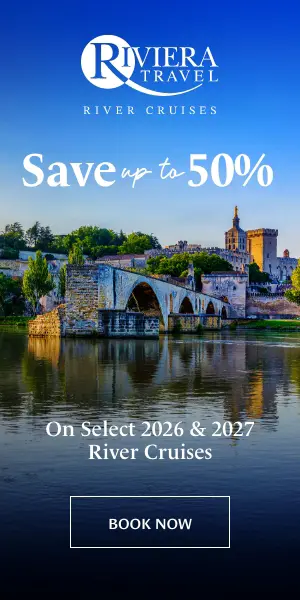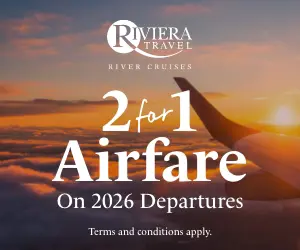InterContinental Joins Trend Toward Direct Booking Discounts
by Richard D'AmbrosioInterContinental Prague. Photo:
InterContinental Hotels Group (IHG) this week became the fourth major global hotel chain to offer exclusive discounts directly to their loyalty program members.
Your Rate by IHG® Rewards Club launches this month at IHG hotels in the Americas and Europe, and will be promoted as part of major brand campaigns in both regions, the company said. It will be rolled out to Asia, the Middle East, Africa and China later this year.
The company said it piloted the program in Europe and the Americas in 2015. The company’s IHG Rewards Club has more than 92 million members worldwide.
IHG’s direct discounts follow on the heels of similar programs from Marriott International, Hilton Worldwide and Hyatt Hotels.
Travel agents and industry associations are focused on the dilemmas caused by lodging companies offering discounts directly to their customers through their proprietary booking engines and apps. But in an industry where knowing your customer can be a major competitive advantage, travel agents also need to consider the impact of the deepening digital consumer relationships that companies like Hyatt Hotels Corp. are developing.
While proprietary booking tools allow travelers to “select the right room type and amenities that fit their needs” the company said in its April 18th press release, they also allow Hyatt to “better get to know guests and tailor experiences accordingly” and offer “around-the-clock support.”
With greater data on room and dining preferences, and what travelers do when they arrive on property, hotel companies are creating unprecedented data warehouses on travelers that could encroach on one of the prized properties of the travel agent value proposition—highly personalized, dedicated service.
Later this year, Hyatt will introduce an enhanced mobile app that will “provide guests who book direct the ability to make on-demand requests by communicating instantly with Hyatt on services like Messenger or text messaging,” the company said in its April 18 press release.
“Coming mobile features for on-demand communication and services will further travelers’ ability to drive their own experiences,” said Ellen Lee, senior vice president, global digital for Hyatt, in the press release. “And when you book direct, Hyatt colleagues have more opportunities to personalize guest experiences based on preferences, from knowing you want an extra blanket to helping you celebrate a special occasion.”
Ray Carlin, vice president of hospitality strategy and solutions management at software firm Oracle, noted that companies like Starbucks, Marriott International, and Starwood Hotels and Resorts Worldwide are pioneering mobile tools that are enhancing customer loyalty.
In a recently released survey, “Millennials and Hospitality: The Redefinition of Service,” Oracle noted how 23% of American millennials already manage loyalty programs via mobile. Another 52% want to in the future.
Smartphone use ranks highest amongst the millennial generation, but baby boomers also are high adopters of mobile technology. According to the Pew Research Center, 86% of those ages 18-29 have a smartphone, as do 83% of those ages 30-49, versus 68% of all U.S. adults.
In its report, Oracle noted how Millennials (those aged about 20-35) are willing to share more personal data in return for both personalization and acknowledgment from suppliers. “This means that you can gather invaluable information on behavior, target promotions to increase average order value, and deliver special guest experiences that fuel repeat business,” Oracle said in the report.
While lodging companies have been offering digital tools for many years, just 13% of Millennials have used a hotel’s mobile app, so personalized service hasn’t yet penetrated the overall guest experience. For example, only 12% of Millennials say they have ordered room service on their mobile devices, and only 6% had booked a spa treatment or other service, and.
But that could soon be changing. In responses to open-ended questions, Millennials said ordering room service via mobile was the number-one interaction they wanted from a hotel.
Oracle thinks part of the problem is hotels simply haven’t been offering the right services and promoting them actively. Oracle survey respondents who had worked in hospitality suggested that their employers needed to promote their technology services more to guests. “Hotels and restaurants are investing time and resources in developing apps, but maybe they need to market them better too,” the report commented.
While mobile apps and other tools are becoming more prevalent, Oracle’s Carlin says the preference for digital is not “homogenous. There is still, for some individuals, a strong desire for more face-to-face service.”
Experts say the key for agents retaining customer loyalty is to combine investing in digital tools, while at the same time continuing to deepen personalized service over the phone and face-to-face.
“We’ve seen similar moves from every sector of the industry for years,” said travel agency consultant Nolan Burris. “Even before the Internet existed, suppliers have sought to have a more direct relationship with consumers.
“Travel agents must take control of their own financial futures. They must become a product distinct and separate from that of the suppliers they book. That product is consulting, advice, support, guidance, advocacy, and relationships with suppliers to protect their client’s best interest. Most important of all, that product has to be so good that travelers will pay a profitable fee for it,” Burris said.
All travel industry players, Carlin said, need to “use mobile to compete better with industry disruptors.”
























